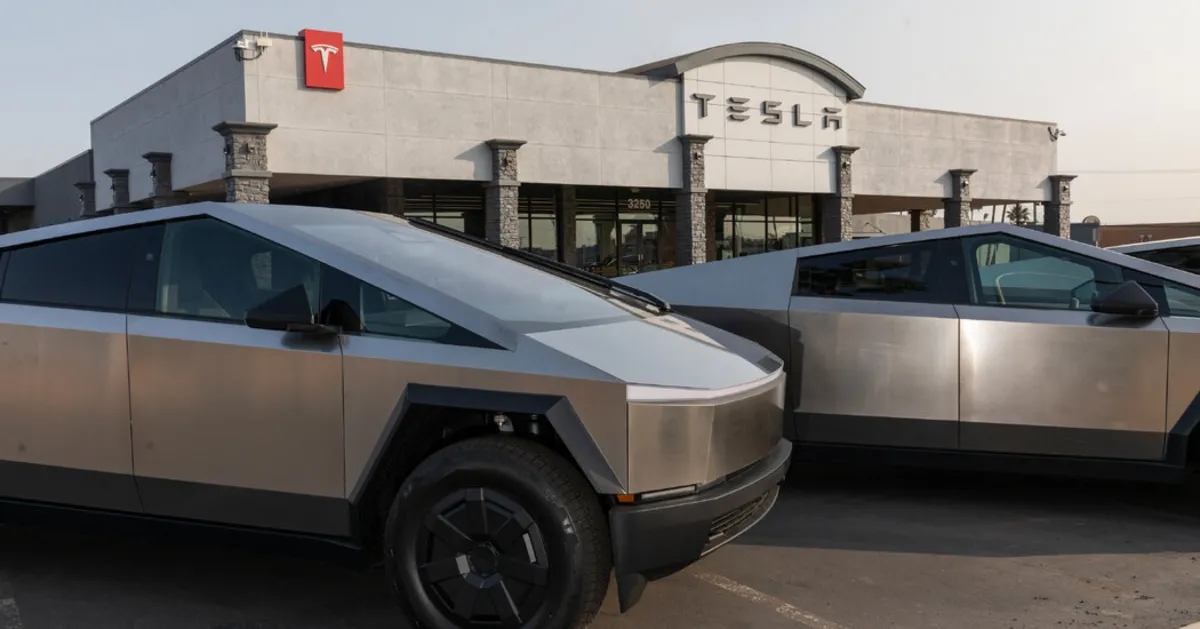
Tesla announced on Wednesday that its profit experienced a notable decline in the third quarter of the fiscal year. The company's profit fell to $1.4 billion, down from $2.2 billion in the same quarter last year, marking a significant drop of 37 percent. Despite this downturn in profit, Tesla's sales increased to $28.1 billion, up from $25.2 billion in the previous year, indicating a complex financial landscape for the electric vehicle giant.
From July through September, Tesla sold a greater number of vehicles compared to the third quarter of 2024. However, the company earned less per vehicle due to recent price reductions and attractive financing options, including low-interest loans for its most sought-after models. Earlier this month, Tesla further reduced prices, offering simplified versions of its Model 3 sedan and Model Y sport utility vehicle at prices approximately $5,000 lower than their previous lowest-cost versions. This strategy aims to stimulate sales in a competitive market but has raised concerns over profit margins.
The earnings report comes just ahead of a crucial vote by Tesla shareholders, scheduled for November 6, regarding a proposed pay package for CEO Elon Musk. The plan would grant Musk shares potentially worth $1 trillion if he meets certain criteria related to profits, sales, and stock valuation. Analysts anticipated that Tesla would present a positive quarterly report to influence the outcome of this vote.
For many of Musk’s supporters, traditional metrics like sales and profit are no longer the primary indicators of Tesla's success. Instead, they focus on the company's potential in emerging sectors, particularly self-driving taxis and humanoid robots. Analysts emphasize that Tesla car sales remain vital, as these vehicles can be equipped with advanced self-driving software that owners are willing to pay extra for. The data collected from the cameras installed in Tesla vehicles plays a crucial role in training the artificial intelligence needed for fully autonomous driving.
Despite the optimism surrounding Tesla's future, skepticism remains regarding the company's current valuation. Critics argue that Tesla’s share price is excessively high when compared to its earnings. In fact, Tesla's quarterly profit of $1.4 billion slightly outperformed General Motors, which reported earnings of $1.3 billion for the same quarter. However, Wall Street values Tesla at more than 20 times the market capitalization of G.M., raising questions about sustainability.
In the third quarter, Tesla benefited from a surge of Americans taking advantage of a federal tax credit for electric vehicles, which expired at the end of September. However, analysts predict that sales may decline in the upcoming months. Additionally, Tesla is expected to earn less revenue from clean air credits, which other automakers purchase to comply with environmental regulations. These regulations were weakened by the Trump administration, which reduced the financial support Tesla had previously received from other manufacturers.
Moreover, Tesla's share of the U.S. electric vehicle market has continued to shrink, falling to 41 percent in the third quarter, down from 48 percent a year prior, as competition rises from Chinese, American, and European manufacturers offering comparable technology at lower prices. According to data from Cox Automotive, this trend may further challenge Tesla's dominance in the electric vehicle market.